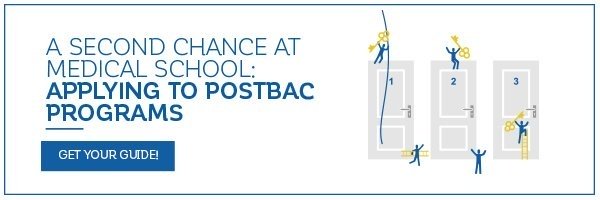Physical Address
Now that we have an outline, each paragraph should deal with the core experiences X,Y, and Z. Remember, this is not a resume where you simply restate what happened. We want to know what qualities and traits these experiences developed in you. How did these specific experiences encourage you to apply to a pre med postbac? Be sure to include stories and experiences that develop and show what sort of person you are (e.g., instead of saying “I am kind”, mention that you volunteer at soup kitchens).
5 Best Tips for a Strong Premed Post-Bacc Personal Statement

Because of Covid more people are applying to premed post-bacc programs and medical school. For med school, applications are up 18% or more during the 2021-2022 cycle. Despite lower physician reimbursement and increased job risk, Covid-19 is leading more potential candidates to make the plunge and apply. In a typical year, you may have had a reasonable shot at getting into a postbacc progra m . However, with substantially more applicants taking up interview and admissions slots, now is the time to figure out how to maximize your chances of getting in. Of course, there are resume-building tactics that can help improve your diversity as a candidate. When you sit down with your application, remember our 5 best tips to make a strong premed post-bacc personal s tatement . Although we are discussing tips for the premed post bacc applicant, all of these tips will help if you’re working on your med school statement as well!
1. Develop a compelling story for your personal statement with a strong outline.
Personal statements are just that: personal. However, to develop a good story, you need to have a good outline: In the introductory paragraph, begin with an anecdote. Preferably en media res . Pick a moment that captures why you want to go to med school/postbac program. If it comes from a volunteering or medicine experience, even better. If it’s a personal experience with healthcare, that works too. It must be personal. Remember to describe the scene and make us feel we are there with you. The goal here is to show an important moment rather than to tell us about it.
In the introductory paragraph (or second paragraph), you must lay out the outline for the remainder of the essay. What experiences brought you to medicine? List them. For instance, “My experiences doing X,Y, and Z helped nurture this excitement for [blank] and have led me to pursue medicine as a career.”
Now that we have an outline, each paragraph should deal with the core experiences X,Y, and Z. Remember, this is not a resume where you simply restate what happened. We want to know what qualities and traits these experiences developed in you. How did these specific experiences encourage you to apply to a pre med postbac? Be sure to include stories and experiences that develop and show what sort of person you are (e.g., instead of saying “I am kind”, mention that you volunteer at soup kitchens).
What are your goals? And why will a premed post-baccalaureate program help you achieve them? This is critical. Many otherwise good applicants forget about this detail. It’s not enough to want to go to medical school. Admissions officers want to know what specifically you hope to achieve by going. What are your future goals and how will a premed post-baccalaureate program take you there? Think beyond just being a physician. Talk about improving particular aspects of society such as increased access to care for a particular demographic .
2. Don’t worry if your reasons for going to medical school are complicated!
A 1 page or 2 page essay isn’t the place to discuss all the details. Your goal is a coherent and truthful story. S torytelling isn’t about telling everything. It’s about honing in on a single uniting thread and caring it through .
This area is particularly difficult for many applicants. One way to make sure your reasons for going to medical school don’t go all over the place is to focus in on four things: (1) why you studied what you did in undergrad and what you intended to do with that degree, (2) what specific volunteering/clinical experiences did you have that sparked your initial interest in medicine, (3) what did you learn about the role of a physician from these experiences, and (4) why will you be successful in this career path. This will really help your premed post-bacc personal s tatement !
3. Incorporate your experiences into the essay.
While your essay isn’t the right place to list each item in your resume. It’s important to highlight the main activities that led you to want to become a physician and to link them together as part of the greater narrative that is your life. Don’t repeat what was said elsewhere in your application. The essay is your story about yourself. Focus on what you did and link experiences together to paint a picture of the physician that you will become. Are you interested in global health? Public policy? Orthopedic surgery? Well, why? What experiences did you have that led you to this conclusion? What patient interactions did you have that made you want to do this?
4. Address your deficits head on .
A lot of people don’t do this and they run into trouble. If you took a science course and struggled or if you had an experience that was challenging (and relevant to your life experience), you may want to address this in your application. (Note: there are times when you should not do this). Admissions officers see thousands of applications. A story explaining a failure, and what you learned from it is far more compelling than a C minus that is glossed over. What is important is to explain why you did poorly, what you learned from the experience, and how this will make you a better student in the future.
5. Choose your words carefully.
This may be the most important piece of advice I can give. While you should never lie, there are times when you should avoid oversharing. For example, let’s say you had trouble in school due to mental health issues. Although there are times when these make for a very compelling story, often it is best to change the wording. Instead of mentioning mental health issues that caused your grades to decline, just simplify it to “health issues”. It is general enough and truthful enough to make sense without giving an admissions officer concern about your ability to succeed in the future. Also, sometimes it is worth omitting large sections of your story because you aren’t writing an autobiography. You are writing a short, succinct, true-enough personal statement. Simplify and distill. Find the essence of your story and use that to weave your yarn.
We hope these premed post-bacc personal statement tips were helpful! If you need help with your personal statement or want additional tips to improve your personal statement, we offer affordable help. Email us at [email protected] or contact us below:
How to Write a Perfect Postbac Admissions Essay

One of the most important parts of the application to postbac programs is the personal statement. This piece of writing allows the admissions committee to get to know you – to hear your voice – and learn more about the obstacles you have overcome to pursue your educational goals.
Three attributes of a successful postbac personal statement
There are three important elements that can make your personal statement resonate with your reader:
- Honesty By sharing how your interest in medicine developed, whether it was through an unusual sequence of events or you took years to find your career path, the more honest you are about your experiences, the better. Writing what you think the admissions committee would like to hear will appear generic and will not help you shine as the unique individual that you are. Tell your story!
- Reflection Taking the time to think through the events of your life can help you see with more clarity what you would like to tell the admissions committee through your personal statement. This is your chance to evaluate how your life experiences have made you the person that you are today. Using old journals or photo albums can help facilitate this process and allow you to remember those moments that shaped the motivations that govern your values and life goals.
- Structure By creating an outline and following it as you write your essay, you will be adding structure to it. Essays that are well written are more likely to attract the attention of a reader who can become an advocate on your behalf during the admissions process. Submitting a strong and well-structured piece of writing can make an enormous difference in how your application is viewed.

Writing about yourself in your postbac application essay
One of the most common mistakes that students make in writing personal statements is that they write about other people or events and not about themselves. Often it can be challenging to write about ourselves – especially in an application – when we know that we will be judged or evaluated as an applicant in competition with others. Here, I list a few steps that can help you excel in this challenging rhetorical position.
-
Recognize that you are a unique individual and that there is no one else in the world like you. You’re an original!
It can be intimidating to write about yourself. By using these tips, you can ensure that you represent yourself well throughout your essay and that you remain front and center. Take your time and have others provide feedback as you write your essay. Even the strongest writers struggle when faced with writing about themselves. But take heart! Tell your story as only you can tell it.
You now know all the elements of a winning postbac essay. Now it’s time to turn to the pros to ensure that you take these ingredients and put them together successfully to create a compelling, slam-dunk postbac essay. Check out our Postbac Application Package and work one-on-one with an expert admissions coach who will guide you through the entire postbac admissions process.










